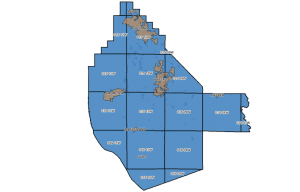Illinois passes budget ahead of spring deadline
For the first time since 2015, the Illinois General Assembly capitalized on bipartisan negotiations to pass what lawmakers referred to as a balanced budget before the end of the spring session.
The budget allows the state to spend $38.5 billion for fiscal year 2019.
On Monday, Rauner signed the budget into law, the first full budget he has approved since taking office in 2015.
“It’s a step in the right direction, though it does not include much-needed debt paydown and reforms that would reduce taxes, grow our economy, create jobs and raise family incomes,” Rauner added. “The fiscal year 2019 budget is the result of bipartisan effort and compromise.
“We worked together to provide a budget to the people of Illinois that can be balanced, with hard work and continued bipartisan effort to deliver on the promises it makes.”
Passing the House of Representatives 97-18 and the Senate 56-2, the legislation was delivered to Rauner’s desk Thursday evening, the final day of the spring session.
As Rauner prepares for his November bid for re-election, his opponent, Democratic gubernatorial candidate J.B. Pritzker, also offered a statement on the budget.
“I applaud the bipartisan working group and the General Assembly for passing a state budget — something Bruce Rauner has never done,” he said. “Hardworking Illinois taxpayers deserve more than going years without a spending plan, and when I’m governor, I will always work in good faith with lawmakers to get the job done.”
State Sen. Paul Schimpf (R-Waterloo) voted in favor of the two budget bills when they were called to the Senate floor last Wednesday evening.
“This budget isn’t perfect by any means, but it satisfies my three largest concerns,” Schimpf stated in a press release. “As I’ve previously stated — it had to be balanced, have no new or increased taxes, and had to comply with the Illinois Constitution.
“Despite its imperfections, this budget meets those criteria.”
As one of only 20 legislators in the entire General Assembly to vote “no” on the budget, State Rep. Jerry Costello II (D-Smithton) said he did not agree with the notion of the state paying for abortions.
In September 2017, Rauner signed HB 40, providing Medicaid and state health insurance companies to cover abortions.
“While I appreciate the bipartisan work done on both sides of the aisle to come to a budget agreement, I personally could not vote for a budget that contributes to taxpayer funding of abortion,” Costello said.
Key to balancing the budget was the additional $5 billion in revenue resulting from the income tax hike passed last year.
The budget includes $1.3 million to supplement overspending during the 2018 fiscal year, as well as an additional $350 million for K-12 education under the new school funding formula.
On top of that, municipalities such as Waterloo and Columbia should see a slight improvement in monthly revenue coming from the state for income and sales taxes.
Whereas cities only received 90 percent of monies owed them last year, this year they will receive 95 percent, the Chicago Tribune reports.
Lawmakers added an item involving voluntary buyouts of former state employees’ pensions, estimated to result in $445 million in savings to the state. These former employees opting out would receive a one-time payment amounting to 60 percent of the pension’s value, therefore with the ability to invest the money elsewhere.
According to reports, some lawmakers believe the new budget doesn’t appropriately address paying down the state’s $7 billion bill backlog. The amount of unpaid bills reached as high as $16 billion last year.






